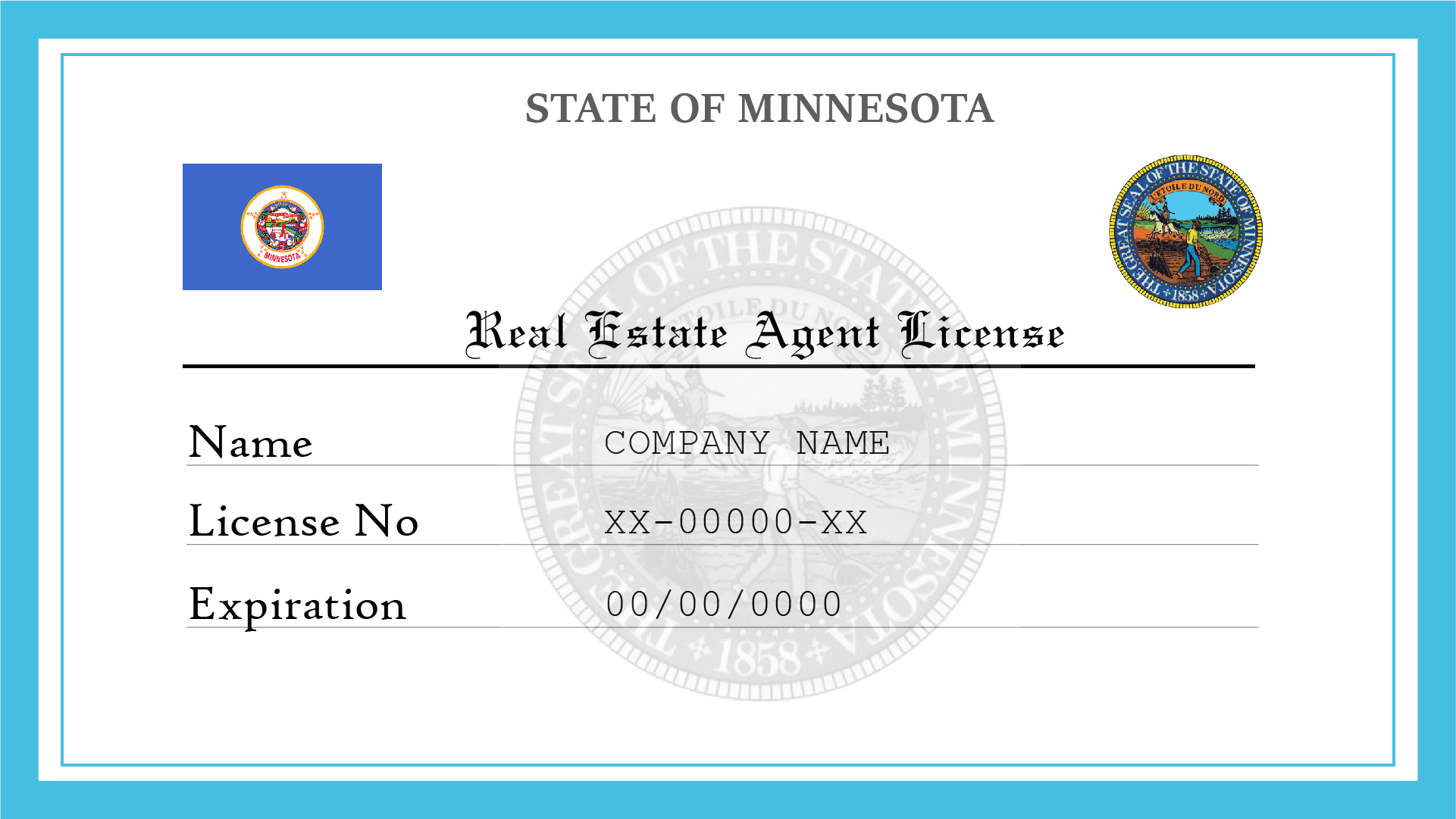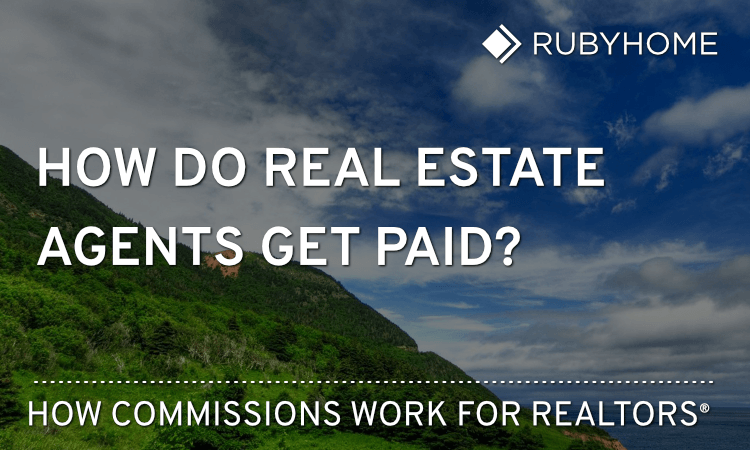
To become a New York real estate agent, you must first get your license. A 75-hour prelicensing education course is required to become eligible for licensing. You can take this course at any approved school or online. The course content covers all of the information you need to pass the state exam and receive your New York real estate license.
How to Get a NY Real Estate License
Find a brokerage that will sponsor you to get your real estate license. This will give you the opportunity to learn, grow and eventually become your own broker. Finding the right broker can be difficult so take your time.
Once you've found your sponsoring broker, you can apply for your realty salesperson license. Online or mail applications are both possible. You will need to pay $65 for application fees. In order to verify your eligibility, your sponsoring broker's number must also be included in your application.

How hard is it to pass the real estate exam?
If you prepare well, the New York State real-estate exam is not difficult. This exam includes 75 multiple-choice questions and covers everything you have learned. To pass the exam, you need to score at most 70%. Online scheduling is possible through eAccessNY. You will need to bring a government-issued ID and a document with your exam results when you take it.
Part 1: How do you get a NY Real License?
It's now time to pass the state exam. This 75-question multiple choice test will take you an hour to complete. You must answer all the questions correctly. Register through eAccessNY for access to the exam.
Part 2 of How to Get New York License
The state exam and pre-licensing education courses are required to earn your New York real estate license. The NY Department of State's Occupational Licensing Management System provides more information about each of these steps.
After passing your exam, you can apply for your license via eAccessNY. Once you've submitted your application, you'll be notified when it's ready for review and approval. This process can take several weeks. Once your application is approved, you'll receive your license and a pocket card in the mail.

A brokerage that provides excellent mentorship and support for new agents is a great option if you are looking to obtain your New York real estate license. This will help you succeed and will make it much easier for you to move into a new career. Before you sign a contract with any brokerage, it is important to ask about commission splits or employment terms.
FAQ
What are the top three factors in buying a home?
When buying any type or home, the three most important factors are price, location, and size. Location refers to where you want to live. Price refers the amount that you are willing and able to pay for the property. Size refers how much space you require.
What is a reverse mortgage?
Reverse mortgages allow you to borrow money without having to place any equity in your property. It works by allowing you to draw down funds from your home equity while still living there. There are two types of reverse mortgages: the government-insured FHA and the conventional. A conventional reverse mortgage requires that you repay the entire amount borrowed, plus an origination fee. If you choose FHA insurance, the repayment is covered by the federal government.
Should I use a mortgage broker?
A mortgage broker can help you find a rate that is competitive if it is important to you. Brokers work with multiple lenders and negotiate deals on your behalf. Some brokers receive a commission from lenders. Before you sign up for a broker, make sure to check all fees.
Should I rent or buy a condominium?
Renting is a great option if you are only planning to live in your condo for a short time. Renting lets you save on maintenance fees as well as other monthly fees. A condo purchase gives you full ownership of the unit. You have the freedom to use the space however you like.
Can I buy a house without having a down payment?
Yes! There are many programs that can help people who don’t have a lot of money to purchase a property. These programs include conventional mortgages, VA loans, USDA loans and government-backed loans (FHA), VA loan, USDA loans, as well as conventional loans. More information is available on our website.
How can I eliminate termites & other insects?
Termites and other pests will eat away at your home over time. They can cause serious destruction to wooden structures like decks and furniture. To prevent this from happening, make sure to hire a professional pest control company to inspect your home regularly.
Statistics
- Over the past year, mortgage rates have hovered between 3.9 and 4.5 percent—a less significant increase. (fortunebuilders.com)
- When it came to buying a home in 2015, experts predicted that mortgage rates would surpass five percent, yet interest rates remained below four percent. (fortunebuilders.com)
- It's possible to get approved for an FHA loan with a credit score as low as 580 and a down payment of 3.5% or a credit score as low as 500 and a 10% down payment.5 Specialty mortgage loans are loans that don't fit into the conventional or FHA loan categories. (investopedia.com)
- Some experts hypothesize that rates will hit five percent by the second half of 2018, but there has been no official confirmation one way or the other. (fortunebuilders.com)
- The FHA sets its desirable debt-to-income ratio at 43%. (fortunebuilders.com)
External Links
How To
How to Manage A Rental Property
You can rent out your home to make extra cash, but you need to be careful. We will show you how to manage a rental home, and what you should consider before you rent it.
This is the place to start if you are thinking about renting out your home.
-
What should I consider first? Before you decide if you want to rent out your house, take a look at your finances. If you are in debt, such as mortgage or credit card payments, it may be difficult to pay another person to live in your home while on vacation. You should also check your budget - if you don't have enough money to cover your monthly expenses (rent, utilities, insurance, etc. It might not be worth the effort.
-
What is the cost of renting my house? There are many factors that go into the calculation of how much you can charge to let your home. These include factors such as location, size, condition, and season. Prices vary depending on where you live so it's important that you don't expect the same rates everywhere. Rightmove estimates that the market average for renting a 1-bedroom flat in London costs around PS1,400 per monthly. This means that you could earn about PS2,800 annually if you rent your entire home. While this isn't bad, if only you wanted to rent out a small portion of your house, you could make much more.
-
Is it worth it. You should always take risks when doing something new. But, if it increases your income, why not try it? Be sure to fully understand what you are signing before you sign anything. You will need to pay maintenance costs, make repairs, and maintain the home. Renting your house is not just about spending more time with your family. Before you sign up, make sure to thoroughly consider all of these points.
-
Are there benefits? You now know the costs of renting out your house and feel confident in its value. Now, think about the benefits. Renting out your home can be used for many reasons. You could pay off your debts, save money for the future, take a vacation, or just enjoy a break from everyday life. No matter what your choice, renting is likely to be more rewarding than working every single day. Renting could be a full-time career if you plan properly.
-
How can I find tenants After you have made the decision to rent your property out, you need to market it properly. Make sure to list your property online via websites such as Rightmove. After potential tenants have contacted you, arrange an interview. This will help to assess their suitability for your home and confirm that they are financially stable.
-
What are the best ways to ensure that I am protected? If you're worried about leaving your home empty, you'll need to ensure you're fully protected against damage, theft, or fire. Your landlord will require you to insure your house. You can also do this directly with an insurance company. Your landlord may require that you add them to your additional insured. This will cover any damage to your home while you are not there. This doesn't apply to if you live abroad or if the landlord isn’t registered with UK insurances. In such cases, you will need to register for an international insurance company.
-
If you work outside of your home, it might seem like you don't have enough money to spend hours looking for tenants. But it's crucial that you put your best foot forward when advertising your property. Make sure you have a professional looking website. Also, make sure to post your ads online. It is also necessary to create a complete application form and give references. While some prefer to do all the work themselves, others hire professionals who can handle most of it. Either way, you'll need to be prepared to answer questions during interviews.
-
What happens once I find my tenant If you have a current lease in place you'll need inform your tenant about changes, such moving dates. Otherwise, you can negotiate the length of stay, deposit, and other details. It's important to remember that while you may get paid once the tenancy is complete, you still need to pay for things like utilities, so don't forget to factor this into your budget.
-
How do I collect the rent? You will need to verify that your tenant has actually paid the rent when it comes time to collect it. If not, you'll need to remind them of their obligations. Before you send them a final invoice, you can deduct any outstanding rent payments. If you're struggling to get hold of your tenant, you can always call the police. They won't normally evict someone unless there's been a breach of contract, but they can issue a warrant if necessary.
-
How do I avoid problems? Although renting your home is a lucrative venture, it is also important to be safe. Make sure you have carbon monoxide detectors installed and security cameras installed. Make sure your neighbors have given you permission to leave your property unlocked overnight and that you have enough insurance. You should not allow strangers to enter your home, even if they claim they are moving in next door.